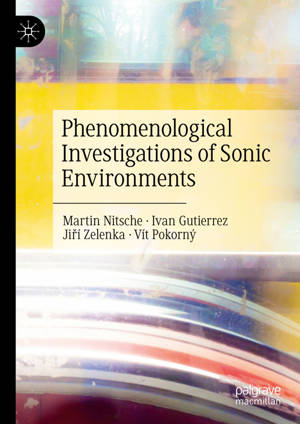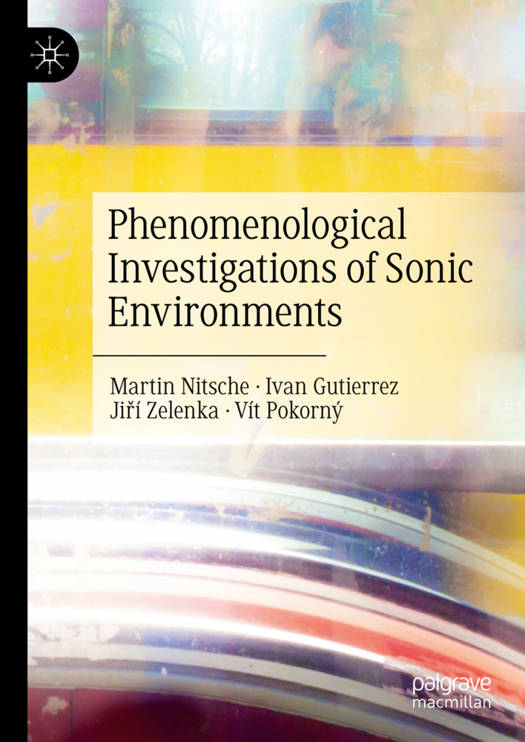
- Retrait gratuit dans votre magasin Club
- 7.000.000 titres dans notre catalogue
- Payer en toute sécurité
- Toujours un magasin près de chez vous
- Retrait gratuit dans votre magasin Club
- 7.000.0000 titres dans notre catalogue
- Payer en toute sécurité
- Toujours un magasin près de chez vous
Phenomenological Investigations of Sonic Environments
Martin Nitsche, Ivan Gutierrez, Jiří Zelenka, Vít PokornýDescription
Phenomenological approaches to sounds, noises, voices, and music traditionally privilege methods that center visual perception. This book aims not only to phenomenologically describe sonic environments, but also to develop an audition-centered phenomenological methodology to enable this task. "Sonic environment" is this book's term for the acoustic shape of human life-environment, which is multisensory and does not exclude visual, tactile, olfactory, and gustatory sensations connected with sounds or their sources. Sonic environments (in so far as they are lived) are not composed of separate sounds, but created by "sonic phenomena" - i.e., lived (real or imagined) experiences with sounds, noises, voices, and music. Just as phenomenology traditionally privileges the visual over the audio, phenomenology thematically prefers listening to a voice or a music over less articulated sonic experiences (i.e., sounds without an obvious meaning, melody, or rhythm).In this respect, the book not only provides missing phenomenological descriptions of sonic environments, but also redefines phenomenological methodology with respect to acoustic perception.
Spécifications
Parties prenantes
- Auteur(s) :
- Editeur:
Contenu
- Nombre de pages :
- 165
- Langue:
- Anglais
Caractéristiques
- EAN:
- 9783031659201
- Date de parution :
- 13-08-24
- Format:
- Livre relié
- Format numérique:
- Genaaid
- Dimensions :
- 148 mm x 210 mm
- Poids :
- 325 g

Les avis
Nous publions uniquement les avis qui respectent les conditions requises. Consultez nos conditions pour les avis.






